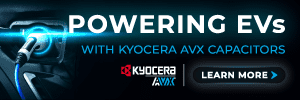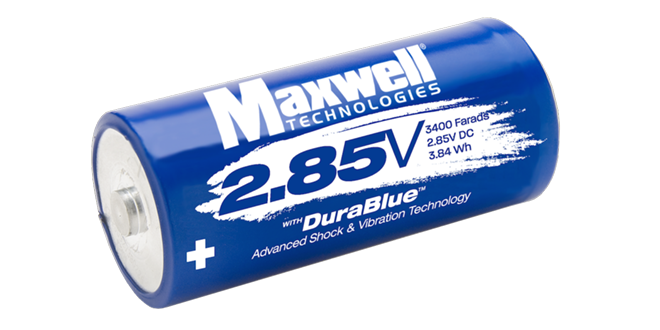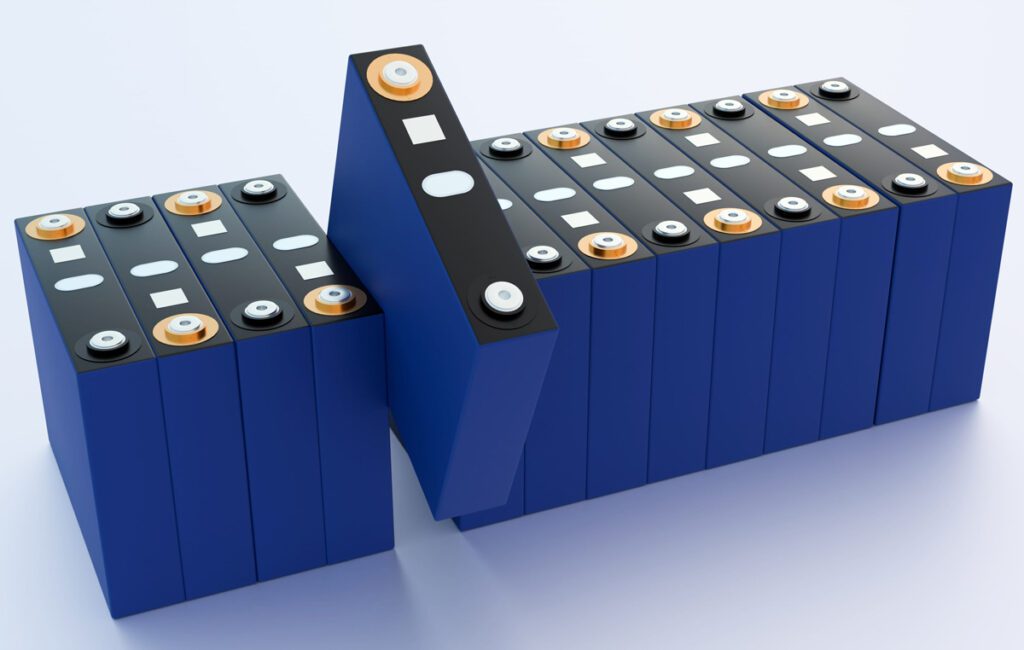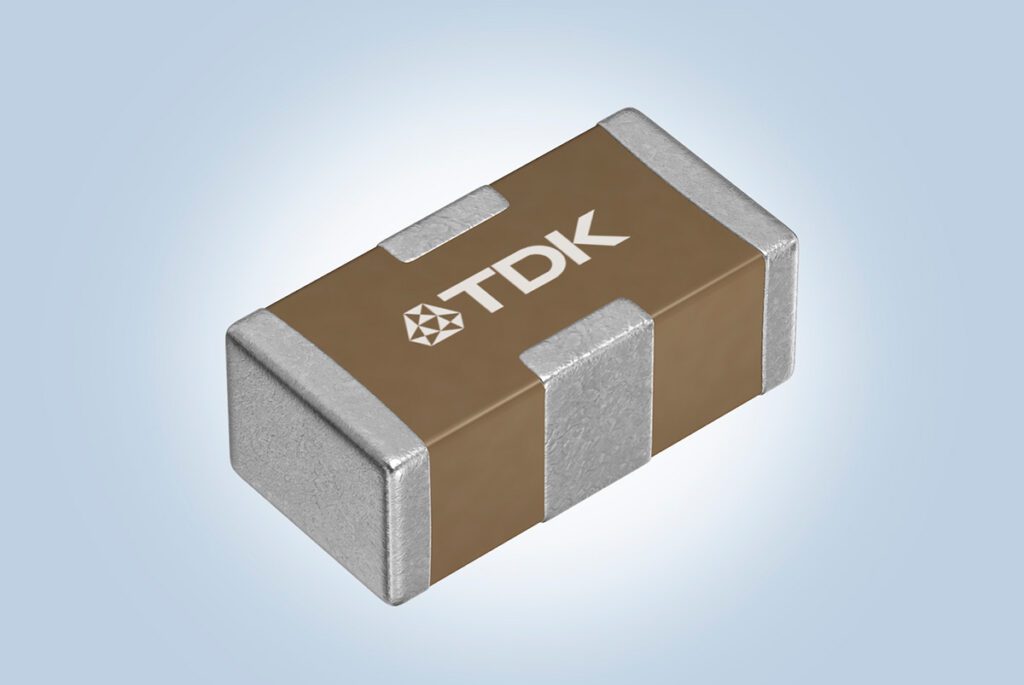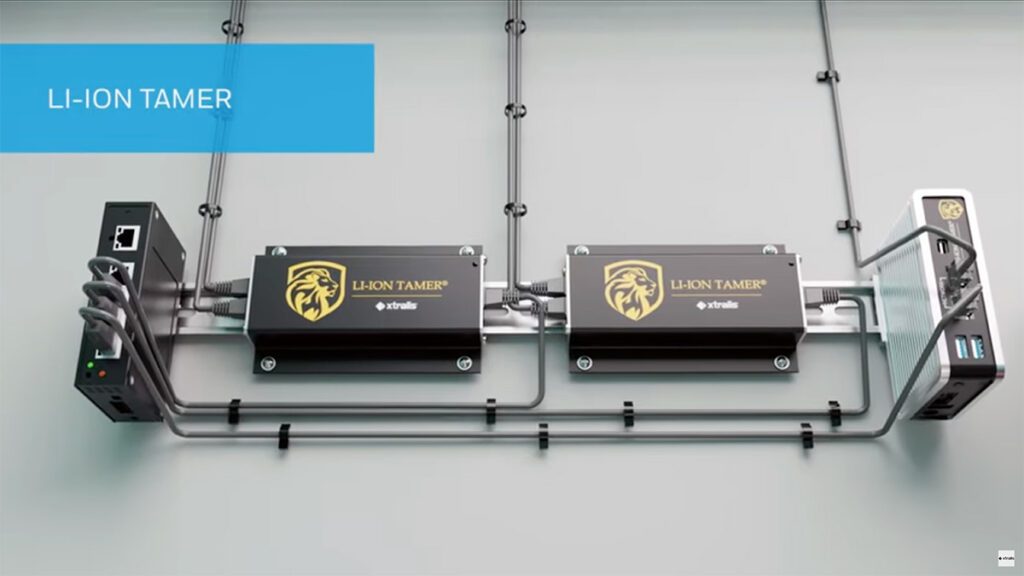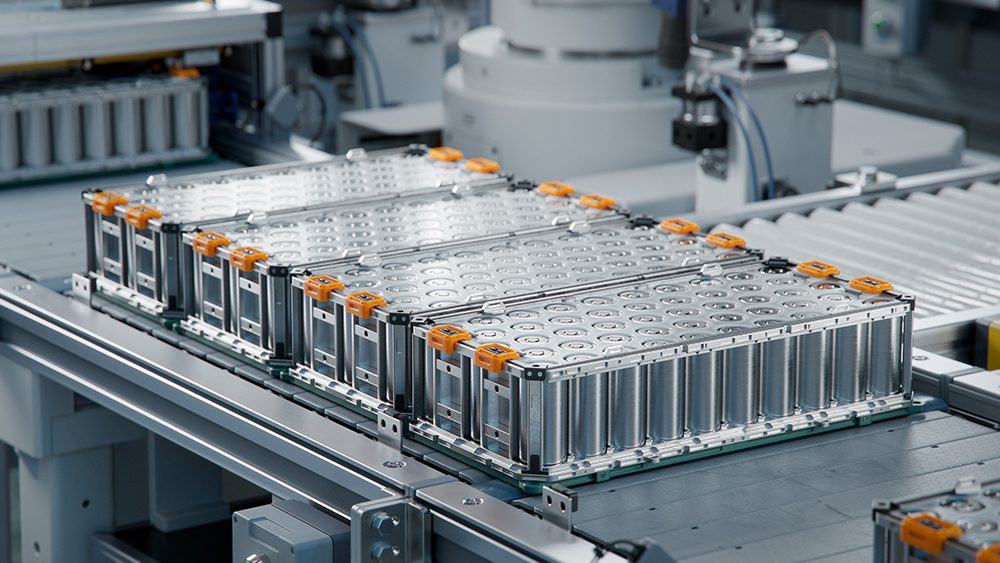Maxwell Technologies’ new DuraBlue ultracapacitor cells incorporate a number of upgrades over previous versions. The 2.85-volt, 3400-farad cells offer up to 1,000,000 duty cycles, with up to 18 kW/kg of specific power and up to 4.00 Wh of stored energy. They use the industry-standard 60 mm cylindrical K2 form factor, and are available with threaded terminals or laser-weldable posts.
Although the new DuraBlue cell carries about a 10% price premium compared to its predecessor (2.75 V, 3000 farad), the increased energy density allows fewer cells to be used for equivalent performance, so the new cells actually offer a lower price per Wh.
Perhaps the most significant improvement: the new cells have greatly increased vibrational resistance and shock immunity, which are particularly important in the mass transit market.
“One of the first industries where Maxwell has had substantial success is in the mass transit hybrid bus market,” said Director of Product Marketing Chad McDonald. “We have learned a lot as we ramped volumes. One of the things we learned in transportation, especially in mass transit, is that shock and vibration are big issues. The placement of the ultracapacitors in these buses exposes them to a vibration profile that exceeds what we had expected. We have a good positon in the bus market, but are seeing more competition. Therefore, we think that this additional vibration tolerance will give us a very defensible position.”
“Our new DuraBlue Advanced Shock and Vibration Technology combines Maxwell’s unique and patented dry electrode formation and manufacturing process with a robust proprietary cell structure design to meet or exceed the most demanding shock and vibration requirements of the growing number of power-hungry applications in global transportation markets,” said Franz Fink, Maxwell’s CEO.
Source: Maxwell via Green Car Congress






